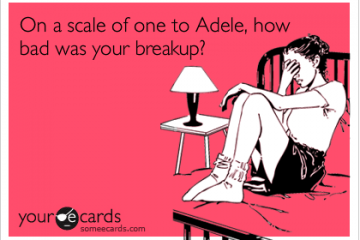The Truth Behind Žiga Virc’s Film Premiering at Tribeca

In 2012, I was staring at my computer contemplating what I’d just watched. The teaser trailer for Houston, We Have a Problem! left me confused: it claimed Yugoslavia sold its space program to the US in March 1961, two months before president Kennedy announced Americans would land on the Moon before the end of the decade.
I grew up in Yugoslavia, was interested in history and familiar with Herman Potočnik Noordung on whose work the supposed program was based, yet I’d never heard of it.
A joke, I decided, but was intrigued; perhaps because I was writing about a similarly unlikely 1960s Yugoslav–American co-operation – a nuclear program. Could the space program have also been true?
Now that Houston, We Have a Problem! is days away from premiering at the Tribeca Film Festival as a part of the Vieiwpoints section, the official trailer had me think again: have I misread it? I went straight to the director Žiga Virc to find out.
Barbara Skubic: What is Houston, We Have a Problem! actually about?
Žiga Virc: It explores the myth of the secret multi-billion-dollar deal behind America’s purchase of Yugoslavia’s clandestine space program in the early 1960s.
BS: So it is a myth…
ŽV: I’m exploring it from my own perspective, leaving to the viewer to decide whether it is a myth or reality. Watch the movie and decide for yourself. (Smiles)
BS: Noooo …. Can’t you just tell us?
ŽV: Is the Yugoslav space program myth or reality – this is the question of our movie. Of course I can’t tell you – it would spoil the movie for the viewers. But think about the Cold War, the space race, and NASA’s moon landing… These landmark events defined an era, but they also fed conspiracy theories. Cold War stories are always unclear and mysterious. Is the story of our film true or yet another conspiracy theory? We’ve added new material to the discussion on both fronts.
BS: Thanks!
ŽV: Welcome. (Smiles) In general, I try to be critical when it comes to conspiracies and understand why they’re so popular: they’re like fairy tales, there’s a villain – government, usually – and a hero, who leads the way.
BS: The Cold War era is filled with stories of espionage, and the Yugoslav engineering of (some very real) underground bunkers for the world’s strongmen is legendary; where did the two intersect for you and sparked your interest?
ŽV: The tension of the Cold War is one aspect; and the engineers and underground bunkers have definitely always been fascinating, especially because they were classified. Anything classified sparks imagination.

Yugoslav President Tito and US President J.F. Kennedy — archival footage used in the documentary.
But the 60s were also a unique decade when everything seemed possible. Space exploration was just the climax. A few years ago I came across interesting documents and archives that intrigued me so much that we started developing a new project – one thing led to another and ‘Houston, We Have a Problem!’ was born.
BS: The difference between the two trailers strikes me as a difference between a mockumentary about an unlikely cooperation and a documentary tapping into conspiracy theories. How did one morph into the other?
ŽV: The trailer released in 2012 generated so much interest that we spent over a month just answering media inquiries. Then people from all over ex-Yugoslavia responded to it with interesting information.
The first trailer simply presented the idea we started with. Then we researched American archives, the archive of former Yugoslav Army, national archives of ex-Yugoslav countries… We filmed in 8 countries on 3 continents, for 47 days in total. The result is a captivating story full of drama. Development was a long process – making an interesting 4-minute-long YouTube video is easy, making an almost 90 minutes long international docu-fiction film that will attract people to cinemas is not.
BS: Without spoilers: does this docu-fiction tell us why so many believe space programs were simply a conspiracy?
ŽV: (Laughs) Apart from Yugoslav space program, the movie deals with both conspiracy theory phenomena and myth phenomena – famous Slovenian philosopher Slavoj Žižek leads the viewer through the movie with his intriguing inserts. It’s interesting that people think that space programs might be a conspiracy because all the facts tell us the opposite: Apollo was a decade-long program that followed previous research; the Moon landing was a culmination of decades of successful and failed missions. It was also an immense program; more than 400.000 people were involved …
BS: And one misquote from someone involved…
ŽV: … a single person with questionable evidence against all the scientific proof in the world.
It’s scary how there can be one conspiracy theorist claiming it was a hoax and you end up with 7% of Americans believing him.
BS: Or 7% worldwide! The film is an international coproduction. Was it hard to generate interest and raise finances?
ŽV: We soon realized that Slovenian funds are not going to be enough to cover all the production costs, so we started searching for funds elsewhere. We’ve spent over 3 years traveling, held numerous meetings with potential partners resulting in a coproduction of Slovenia, Croatia, Germany, the Czech Republic and Qatar and the first original local production by HBO Adria.

Space rockets — archival footage used in the documentary.
But I’d like to point out that having an international coproduction is not just a matter of funds, it helps the film to reach its full potential. Even if there were enough funds at home, I’d be still working with international partners.
BS: What’s next for Houston – and for you?
ŽV: The film opens internationally on April 16 at the Tribeca Film Festival in New York and we are honored to be able to participate. American audiences are very intrigued – the premiere in Manhattan was sold out within minutes! The Slovenian premiere is a few days after Tribeca, on April 25, followed by the cinematic release across the countries of former Yugoslavia in May. I’m looking forward to audiences’ feedback.
As for me, I’ve already started developing a new project, so stay tuned.
When and Where to catch this film at the Festival:









